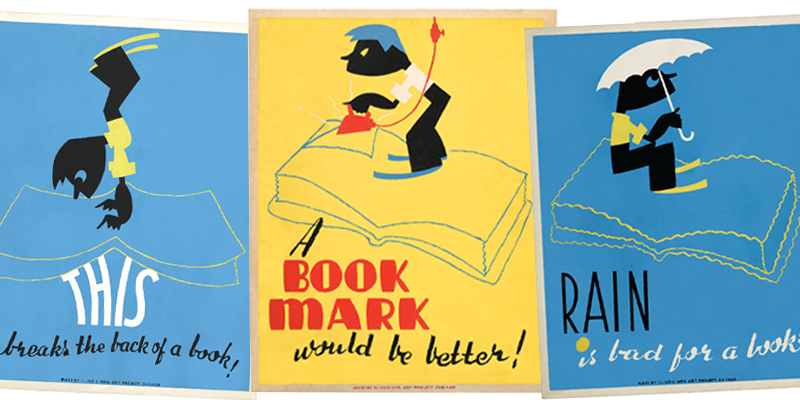Why it’s so hard to lend a book to a friend, according to the internet.
I spent a few days in DC over the long weekend for a wedding. Walking around leafy and well-appointed Capital Hill, I overheard a conversation between two older folks, as their dogs warily sniffed each other, about how people were taking and selling books from the little free libraries around the neighborhood. What could be done to make sure the books made it back to their little libraries, they wondered.
I immediately grumbled. Of course in the nation’s capital, I’d bump into ritzy people putting something out for public use and then policing what they perceive as incorrect usage. But my wife quickly brought me down to earth, reminding me that I have had many visceral reactions to broken book spines. I have more in common with these lobbyist types than I’d care to admit.
Like most book fetishists, I’m finicky about lending books to people, too. But I aspire to be more of a free spirited, “books are just objects,” “when you read a book it lives forever inside of you” type of guy, so I took a lap around the internet to see what other readers are saying about lending books, and if there’s any hope for me to reform.
The problem, as categorized by two Penguin writers who hashed out the lending question over email, is whether you’re a lender or a keeper: are you inclined to hoard or pass on books? A vast majority of people I encountered online are deeply possessive of their books and skeptical of lending. The overwhelming consensus is that you have to assume you’ll never get a lent book back. One Reddit user wrote, “Same philosophy for lending money. Don’t give it unless you’re totally ok with never receiving it back.”
But even worse is getting a book back in horrible shape, which seems to be a primary motivation for people to keep all their books safely cloistered away. Discussions about book-lending invariably devolved into sharing horror stories, and one GoodReads thread was a parade of battered books, including a “…guinnie [sic] pig eating the front cover, tea mug marks, pages ripped.”
A borrower used a book as scratch paper: “…she called and asked me to look in the book around the middle because she had gotten a phone call while she was reading and wrote a phone number on one of the pages and she needed the number.”
Relationships were broken up:
I still shudder at the memory, early in our marriage, of when I found her reading one of my most precious volumes with steam curling up the pages…She argued that it’s the words and reading that’s truly important, not the book itself, and I struggled to find an authentic counter for that, but she never again read any of my books in her rather humid reading sanctuary! I guess the marriage was doomed from the start!!
Family reunions, ruined:
My uncle is always complaining how crap his local library is so I agreed to lend him some books on the understanding that he did not smoke when reading them and when not reading them, kept them sealed inside a bag to protect them. I hate the smell of smoke on books! The first books he returned to me were fine as he followed my rules but the second batch came home stinking of smoke and it took me over a week to get rid of the smell. He’s not getting any more! I know he’s family and I love him but he isn’t respecting my beloved books!!!
My favorite was this person who seems to be some sort of King Midas librarian:
It seems like every time I loan books, I not only don’t get the book back, but something happens that means I never see the borrower again. There were a bunch of novels to a friend’s brother when I was eighteen – then his parents divorced and he moved. There were my horse books loaned as reference when I was in art school, and then I had to leave school. There was whatever I loaned a friend at Barnes & Noble, and then he quit. There was my Lord of the Rings trilogy (happily only a book club edition) to the girl I worked with at the movie theatre, and then she quit. And so on. When I finally noticed the pattern, I stopped lending books.
Sometimes, it’s not the borrowers who are exclusively in the wrong, like this story from Reddit about two philosophy guys beefing:
Lent a book I had by Kant to a coworker who had taken an interest. I had highlighted sections throughout half the book and intended to do the rest when I got it back. He gave it back to me and had highlighted all kinds of stuff and written in it. I ended up ripping it in half and giving him the latter half, saying if it was important enough for him to needlessly vandalize my property he could just keep it and I’d buy the back half of the book from somewhere. Then he defended it, by saying he highlighted things he thought I might like. I told him I might need to borrow his car so I can spray paint some dicks on it because I think he might like those too. I’m not normally a confrontational person. But he fucked up my personal copy of Kant.
Maybe there’s a way to lend books and guarantee their return in perfect shape? That means rules, and there are plenty of people rigorously stipulating how their books can be read and by whom. A Bustle article on how to be a responsible borrower recommends only reading borrowed books in a controlled environment: “Wipe down all surfaces before setting the book down on them,” “Don’t put the book facedown,” “Don’t eat messy foods while reading it.” Considerate advice, but I know some people who can make a mess with even the cleanest of foods — looking at you, old roommate who “spilled” cereal on the ceiling.
Electric Literature published a great survey of librarians’ advice on lending books, and it included the advice to stock gift copies of favorite books: “I tend to buy extras of my favorites when I see them at Goodwill or a used bookstore, specifically so that I always have them on hand to lend.” The idea of always having a copy to lend appeals to me, but having too many books is another problem I hope to solve one day, so this advice would really set me and my Brooklyn apartment back. As Joe Queenan said, “Lending books to other people is merely a shrewd form of housecleaning.”
Another Redditor suggested, “Just lightly chain them to the couch whenever they want to read your copy, and release them once they’ve put the book back on the shelf.” Kinky. Also, note taken: don’t be such a freak about your books.
Ultimately, I aspire to listen to my kindest self, and practice my values of sharing and celebrating books. Which means dealing with my discomfort over beat-up copies on my own time. A GoodReadser—who had their keyboard punctuation confiscated, apparently—makes a good point: “I don’t think enough people read any more and if I can get someone to read a book by lending it to them then i’m quite happy to do so.”
In my survey of testimonials from people who are much more possessive of books than I am, I was embarrassed to notice the pangs of recognition. Maybe this is the summer I become less of a keeper and more of a lender, and spread my love of reading, not my fear of dog-eared pages.





